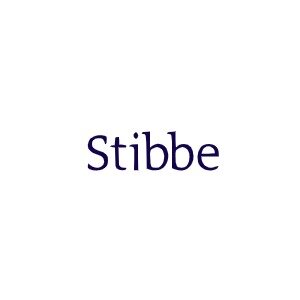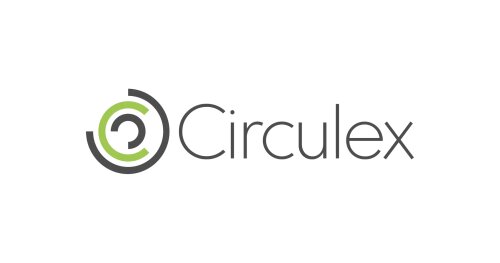Best Antitrust Litigation Lawyers in Brussels
Share your needs with us, get contacted by law firms.
Free. Takes 2 min.
List of the best lawyers in Brussels, Belgium
About Antitrust Litigation Law in Brussels, Belgium
Antitrust litigation involves legal cases where parties allege violations of competition laws. These cases can include claims of unlawful agreements, cartel conduct, abuse of dominance, or anti-competitive mergers. Brussels, often referred to as the heart of European competition law due to the presence of European institutions and agencies, is an important hub for antitrust litigation. Both Belgian and European Union (EU) laws apply, and local courts often handle cases with cross-border implications. Typically, these legal actions are aimed at ensuring fair competition, protecting consumers, and promoting innovation within the marketplace.
Why You May Need a Lawyer
Antitrust litigation can be highly complex and requires deep knowledge of national and European regulations. Common situations where you may require legal help include:
- Being accused of forming a cartel with other companies
- Suspecting a competitor of abusing a dominant market position
- Facing an investigation by the Belgian Competition Authority or the European Commission
- Challenging fines or penalties imposed for alleged competition law infringements
- Seeking to claim damages for harm caused by anti-competitive practices
- Concerns over the legality of mergers or acquisitions affecting Belgian or EU markets
- Needing guidance on compliance to avoid risk of legal violations
- Preparing a defense or cooperating with authorities during dawn raids
In any of these scenarios, a qualified lawyer can help you navigate procedural rules, prepare your case, and offer guidance to reduce legal risks or liabilities.
Local Laws Overview
Antitrust litigation in Brussels is governed by both Belgian and EU competition laws. The primary Belgian legislation is the Code of Economic Law, which incorporates rules prohibiting restrictive agreements, abuse of dominance, and unfair competition. The Belgian Competition Authority (BCA) is responsible for enforcing these rules.
At the EU level, the Treaty on the Functioning of the European Union (TFEU) applies, especially Articles 101 and 102. Article 101 prohibits agreements that restrict competition, while Article 102 targets abuses of dominant positions. The European Commission can investigate and enforce these rules, often in parallel with national proceedings.
Brussels courts have jurisdiction over cases where actions affect the Belgian market or involve Belgian parties, as well as cases related to the implementation of EU law. The process involves complex procedural stages, including fact-gathering, hearings, assessment of economics evidence, and potential appeals. Penalties for violations can be severe, including substantial fines and orders to cease anti-competitive behavior.
Frequently Asked Questions
What is considered anti-competitive behavior under Belgian law?
Anti-competitive behavior includes practices like cartels, price-fixing, market sharing, bid-rigging, and abuse of dominant position such as predatory pricing or unfairly excluding competitors from the market.
Who enforces antitrust laws in Brussels?
The Belgian Competition Authority (BCA) enforces competition laws at the national level. For issues affecting more than one EU Member State or of European significance, the European Commission's Directorate-General for Competition may become involved.
Can individuals or companies bring private antitrust actions in Brussels?
Yes, both individuals and companies who have suffered damages due to anti-competitive practices can bring private actions before Belgian courts to claim compensation.
What are the penalties for breaching antitrust laws?
Violators may face heavy fines, orders to cease illegal practices, and damages claims. Fines can reach up to 10 percent of a company’s global turnover.
What is a dawn raid and how should I respond?
A dawn raid is an unannounced inspection by competition authorities. Companies should cooperate, immediately contact legal counsel, and follow internal protocols to avoid obstructing the investigation.
What is the difference between Belgian and EU antitrust law?
Belgian law applies to conduct affecting the Belgian market, while EU law applies to practices impacting trade between EU Member States. Many cases are subject to both sets of laws.
How long do antitrust investigations take?
Investigations can take several months or even years, depending on the complexity of the case, the amount of evidence, and whether appeals are lodged.
Can small businesses be investigated for antitrust violations?
Yes, all businesses, regardless of size, must comply with competition rules. However, enforcement often focuses on conduct with significant market impact.
Is legal advice necessary even for potential or minor infractions?
Yes, even minor infractions can lead to investigations or penalties, so early legal advice is crucial to mitigate risk and ensure compliance.
What evidence is needed to prove an antitrust violation?
Evidence may include contracts, communications, market data, expert economic analysis, and witness statements. Authorities also use information gathered during dawn raids or from whistleblowers.
Additional Resources
If you need further information or assistance, consider contacting the following organizations and resources:
- The Belgian Competition Authority (BCA): The main enforcer of antitrust laws in Belgium.
- The European Commission - Directorate-General for Competition: Handles enforcement at the EU level.
- Belgian Bar Association: Provides guidance on finding a qualified competition law lawyer.
- Brussels Commercial Court: Handles private litigation related to competition matters.
- Consumer advocacy groups and trade associations: Offer support and guidance for affected businesses or individuals.
Next Steps
If you believe you are involved in or affected by an antitrust issue in Brussels, consider taking the following steps:
- Gather and securely store all relevant documents and communications
- Note all interactions with competitors and keep accurate records
- Avoid discussing sensitive issues with competitors, even informally
- Contact a qualified lawyer specializing in antitrust litigation as soon as possible
- Seek immediate legal advice if you receive notice of investigation, dawn raid, or legal complaint
- Consult the Belgian Competition Authority or European Commission websites for guidance and reporting channels
- Review your business practices and ensure compliance with Belgian and EU competition regulations
Prompt legal advice and proactive compliance can help reduce the risk of costly legal consequences and ensure fair treatment in any investigation or litigation process.
Lawzana helps you find the best lawyers and law firms in Brussels through a curated and pre-screened list of qualified legal professionals. Our platform offers rankings and detailed profiles of attorneys and law firms, allowing you to compare based on practice areas, including Antitrust Litigation, experience, and client feedback.
Each profile includes a description of the firm's areas of practice, client reviews, team members and partners, year of establishment, spoken languages, office locations, contact information, social media presence, and any published articles or resources. Most firms on our platform speak English and are experienced in both local and international legal matters.
Get a quote from top-rated law firms in Brussels, Belgium — quickly, securely, and without unnecessary hassle.
Disclaimer:
The information provided on this page is for general informational purposes only and does not constitute legal advice. While we strive to ensure the accuracy and relevance of the content, legal information may change over time, and interpretations of the law can vary. You should always consult with a qualified legal professional for advice specific to your situation.
We disclaim all liability for actions taken or not taken based on the content of this page. If you believe any information is incorrect or outdated, please contact us, and we will review and update it where appropriate.















